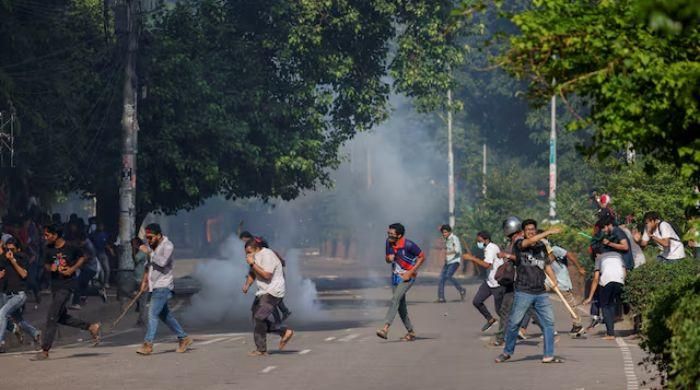DHAKA: Student protesters who ousted Prime Minister Sheikh Hasina have rejected calls by Bangladesh's two main political parties for snap elections and are considering forming their own party to consolidate reforms, according to interviews with four protest leaders.
Their hope is to avoid a repeat of the past 15 years, when Hasina ruled the country of some 170 million people with an iron fist.
For most of the past three decades, Bangladesh has been ruled by either Hasina or her rival Khaleda Zia, both of whom are in their 70s.
Student leaders are discussing the possibility of forming a political party to end the duopoly, said Mahfuj Alam, who chairs a committee tasked with serving as a liaison between the government and social groups such as teachers and activists.
A decision will be made in about a month, the 26-year-old law student said. ReutersHe added that protest leaders wanted to consult widely with ordinary voters before deciding on a platform.
No details have yet been released regarding the students' plans for the political future of their movement.
“People are really tired of the two political parties. They have faith in us,” he said outside Dhaka University's Faculty of Arts.
Tahmid Chowdhury, another student coordinator who helped oust Hasina, said there was a “high chance” they would form a political party. They were still working on their programme, though he said it would be based on secularism and freedom of expression.
“We don't have any other plan that can break the binary without forming a party,” said the 24-year-old graduate student in world religion.
Student leaders in the interim government have not specified what policies they intend to pursue beyond sweeping institutional changes (such as reforming Hasina's hand-picked election commission) to prevent another period of authoritarian rule.
“The spirit of the movement was to create a new Bangladesh, one where no fascist or autocrat could return,” said Nahid Islam, 26, a key organiser of the protests who is part of Yunus's cabinet. “To ensure that, we need structural reforms, which will certainly take some time.”
Touhid Hossain, a career diplomat who serves as Yunus's de facto foreign minister, said Reuters The students had not discussed their political plans with the technocrats.
But he added: “The political landscape is going to change because we have basically excluded the younger generation from politics.”












